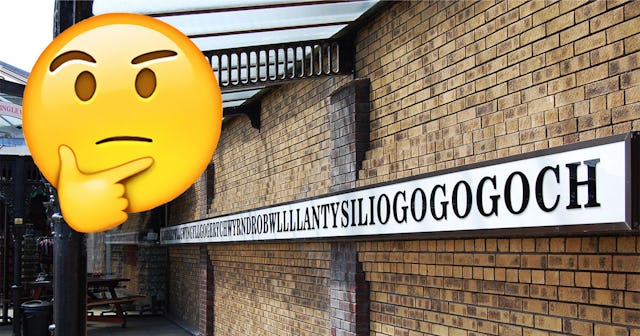The Longest City Names In The World Will Have You Tripping Over Your Consonants

Traveling around the United States soon? Thanks to the Native Americans, you’ll notice a plethora of pretty unique city names. Any guess on how to pronounce Cuyahoga? (Maybe. If you’re from Ohio.) There’s one place name that stumps most people, though… including the people who live on or near it. While not an actual city, this Webster, Massachusetts lake has the longest (and probably hardest to learn) one-word place name in the U.S. All together now: Chargoggagoggmanchauggagoggchaubunagungamaugg.
Pretty sure you messed it up? Don’t fret. Even the city can’t get it right. As a matter of fact, in 2009, Webster made international news when they finally decided to update city signage which misspelled the lake’s name. On the sign, the 45-letter lake name had one “o” where a “u” should be and an “h” where an “n” belonged. When you consider that the name also contains 15 instances of the letter “g,” you really can’t blame the sign maker for the two small screw-ups. To make matters more confusing, there are actually three semi-official spellings of the name.
What is the longest city name in the United States?
So, what is the actual longest city name in the U.S.? The title goes to a small town in Michigan called “Village of Grosse Pointe Shores, A Michigan City.” Of course, not all city names have to be the absolute longest to be interesting. For instance, the longest named city in Alaska is called, “Russian Mission.” What?
RELATED: 60+ Travel Quotes That’ll Have You Packing Your Bags
What is the longest city name in Europe?
If you stray outside the U.S. and into foreign territory, the place names get even longer and harder to pronounce. There’s a town in Wales called “Llanfairpwllgwyngyllgogerychwyrndrobwllllantysiliogogogoch.” With so many consonants, if you don’t know Welsh, your best bet is probably just to avoid trying to pronounce that at all. Been to New Zealand? If so, you might have heard about the infamous hill called, “Taumatawhakatangihangakoauauotamateaturipukakapikimaungahoronukupokaiwhenuakitanatahu.” Assuming, that is, you had any idea what they were saying when they tried to pronounce it.
This hill is 1,000 feet tall and literally means, ” The summit where Tamatea, the man with the big knees, the climber of mountains, the land-swallower who traveled about, played his nose flute to his loved one.” Next time you travel, will you go somewhere popular and scenic… or try someplace just as beautiful but way harder to name?
What is the longest named lake in the U.S.?
Chargoggagoggmanchauggagoggchaubunagungamaugg. This is more than a mouthful and much like its name, this word has a long history.
It was originally called, “Chaubunagungamaugg” which means “fishing place at the boundaries — neutral meeting grounds” or “lake divided by islands.” The lake’s name comes from Loup, an Algonquian language. Algonquians are an American indigenous group who lived in the New England area. They are native to southern Quebec and eastern Ontario.
After English colonists arrived and settled near the lake, its name and meaning expanded:
“Chargoggagoggmanchauggagoggchaubunagungamaugg,” means “English knifemen and Nipmuck Indians at the boundary or neutral fishing place.”
It is the longest word for a place in the U.S. and the third-longest in the world. To think there are two words that are longer than this one is unbelievable. This lake has 15 Gs alone and 14 syllables. And just in case you’re running low on time, it’s also called Webster lake. It’s located in Webster, Massachusetts, near the border of Connecticut.
What word takes 3 hours to say?
This isn’t a joke. The full chemical name for the human protein is 189,819 letters and takes about three hours to say. METHIONYLTHREONYLTHREONYGLUTAMINYLARGINYL…ISOLEUCINE is only part of the word. Click here to check out the entire word. It’s unbelievable.
For more Fun & Games stories, click here.
This article was originally published on